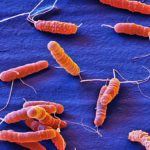Link to Pubmed [PMID] – 18539464
Trends Biochem. Sci. 2008 Jul;33(7):330-8
TonB-dependent transport is a mechanism for active uptake across the outer membrane of Gram-negative bacteria. The system promotes transport of rare nutrients and was thought to be restricted to iron complexes and vitamin B12. Recent experimental evidence of TonB-energized transport of nickel and different carbohydrates, in addition to bioinformatic-based predictions, challenges this notion and reveals that the number and variety of TonB-dependent substrates is underestimated. It is becoming clear that the chemical nature of the substrates, the energetic requirements for transport and the subsequent translocation across the cytoplasmic membrane can differ from those of the well-studied systems for iron complexes and vitamin B12. These findings question the understanding of TonB-dependent uptake and provide insights into the adaptation of bacteria to their environments.

